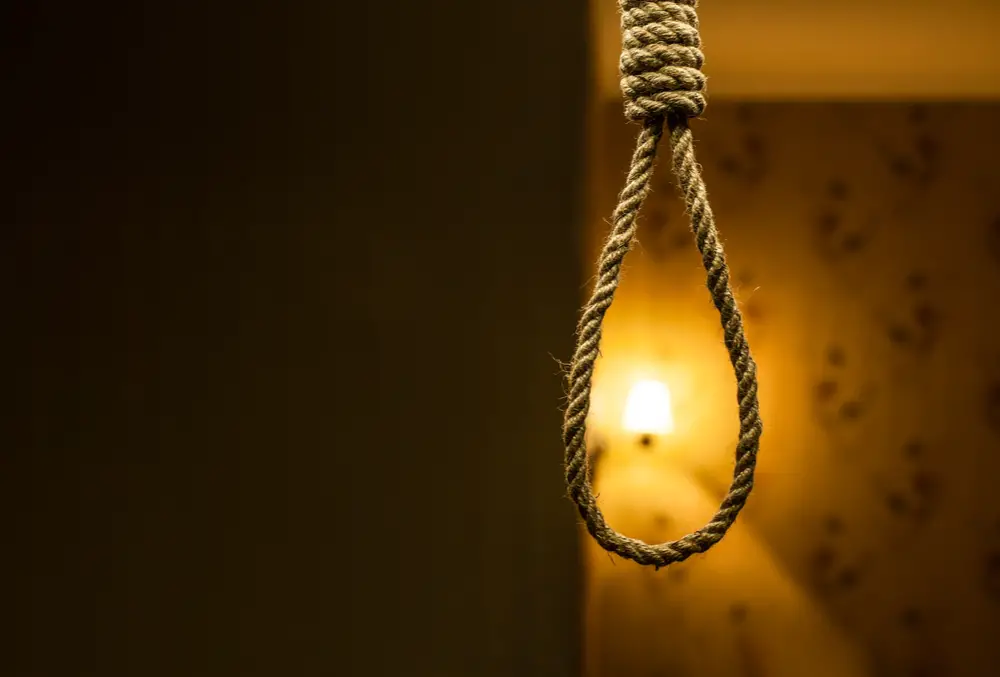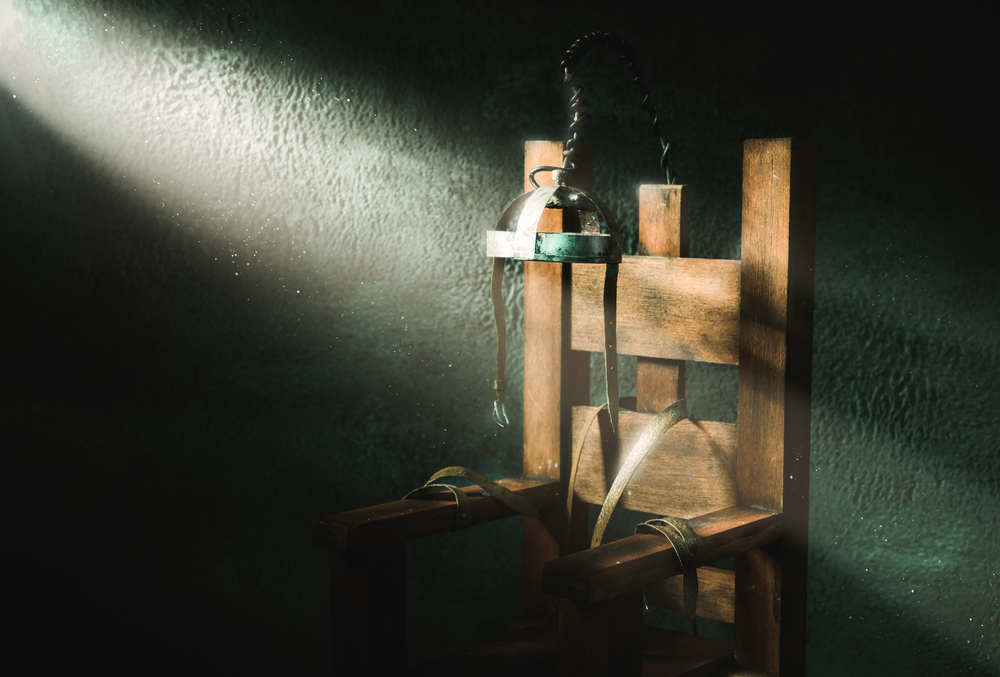Last Updated on May 21, 2022 by Fair Punishment Team
The Death Penalty is the harshest punished that the United States can enact on anyone convicted of a crime. It is reserved for individuals who have committed the worst crimes possible and who the state believes can only be punished by their execution.
However, some states differ as to whether they believe in the death penalty or not. Many see it as a method that they cannot use because they consider it not a legitimate form of punishment; others consider it a highly important part of the judicial system.
This article will answer a question that you might have if you live in Louisiana – does Louisiana have the death penalty?

Does Louisiana Have The Death Penalty?
First of all, let’s answer the most important and simplest question first – does Louisiana have the death penalty?
Louisiana does indeed have the death penalty for murder, however there are certain restrictions on the death penalty being passed down.
For the death penalty to be an appropriate sentence at least one or more than one of the following aggravating factors must be present in the circumstances of the crime. They are:
- The convicted individual committed the murder in preparation or as a result of attempted rape in the first or second degree, arson, kidnapping, burglary, robbery, terrorism or cruelty to juveniles.
- The convicted individual committed the murder against a fire fighter or a peace office whilst they were on duty.
- The convicted individual had been previous convicted of murder, robbery, burglary, kidnapping or arson.
- The convicted individual created a risk of death or great bodily harm to more than one person other than the victim/victims.
- The convicted individual had either paid to have someone killed or been paid by another person to kill someone – this primarily relates to incidents involving organised criminals.
- The convicted individual was at the time of the murder in prison or custody for an unrelated forcible felony.
- The convicted individual enacted the murder in a particularly vicious or cruel way.
- The convicted individual enacted the crime against someone who was either in witness protection or was a witness to another crime that they had committed.
- The convicted individual’s victim in the murder was a correctional officer at a state or federal prison.
- The convicted individual committed the crime against a victim who was under 12 years of age or 65 years or older.
- The convicted individual committed the murder as part of their work in distributing an illegal substance – again this particular aggravating factor is normally linked to organised criminals.
- The convicted individual committed the crime in a ritualistic manner, or the crime was committed in order to satisfy ritual needs.
- The convicted induvial had committed two or more murders in a series of separate incidents – this factor specifically related to serial killers or individuals known as spree killers.
Now that we have answered the question as to whether or not Louisiana has the death penalty or not and the factors that lead to someone being given the punishment for the crime of murder, let’s move on to looking at the history of the death penalty in Louisiana.
The History Of The Death Penalty In Louisiana
The death penalty in the great state of Louisiana is interesting in that it has been sporadic.
Whilst executions have occurred in every decade except the current one since the death penalty was reintroduced in 1976, they have become fewer and fewer over the passing years.
Prior to the 1970s, executions in Louisiana were mainly either conducted by hanging – the preferred method in the state until 1941 – or electrocution, the preferred method even after the introduction of the lethal injection.
Rape or attempted rape was also considered a capital crime alongside murder – this would change as it would with US law over several decades as the number of crimes that would receive the death sentence were slowly whittled down until only murder remained.
Perhaps the most famous pre 1970s murderer to be executed in the state was Toni Henry, the only woman executed in Louisiana who was a prostitute who helped break her husband out of prison before killing a man.
Her story was even turned into a film in 2013.
However since the 1970s there have been fewer executions in the state – this is due to controversial cases in Louisiana’s history which had led many to question the legitimacy of the form of execution in the state.
For example, in 1990 the execution of Dalton Prejean by an all-white jury was condemned because many commentators pointed out that Prejean was not mentally fit to stand trial and certainly not mentally fit to be executed.
Prejean had been convicted of the murder of Trooper Donald Cleveland in 1977.
Prejean had previously served time for killing a cab driver several years before but due to his age at the time of the first crime he was released.
Prejean was still 17 years old when he killed Trooper Cleveland – however when examined by physiatrists he was found to have the IQ of a 13 year old. Prejean’s underdeveloped mental abilities were not considered reasonable grounds for him not to be convicted and sentenced to death which he duly was.
Prejean’s case was only one incident that caused controversy over the exercising of the death penalty in Louisiana – the most recent incident that caused controversy was the last execution in Louisiana – the 2010 execution of Gerald Bordelon.
Bordelon was convicted in 2006 of the kidnap and murder of his 12-year-old step daughter. Bordelon had previously been convicted of rape in the 1980s but had been let out of prison in 2000.
He formed a relationship with his victim’s mother which ended when the victim, Courtney LeBlanc informed her mother that Bordelon had been sexually assaulting her.
Bordelon took his revenge on being forced from the family home by kidnapping and killing his step daughter.
Bordelon did not attempt to appeal his death sentence and accepted his fate.
The controversial part of Bordelon’s case was not so much that he was sentenced to death but rather that the lethal injection method used to end Bordelon’s life and that of other prisoners was questioned in 2012 and found to be not carried out correctly by the state.
As such, whilst the death penalty is still legal in Louisiana it has not been carried out since Bordelon’s execution in 2010 due to drug companies not wanting to supply the state with the chemicals needed to enact the lethal inject and the state’s process of administering them being highly questionable.

Why It Is Important To Know About The Death Penalty In Louisiana
The death penalty is one of the most controversial forms of punishment in the US system. It has been ever since it was officially reintroduced in the 1970s.
Understanding why some states not only approve of the death penalty but also enact it is the only way that those who oppose the death penalty and those who support it can understand one another’s point of view and thus come to some compromise.
Only through compromise can the United States move forward and become a more united country that it already is.

